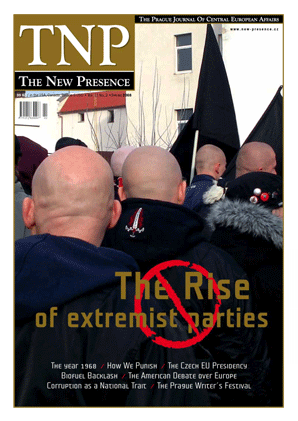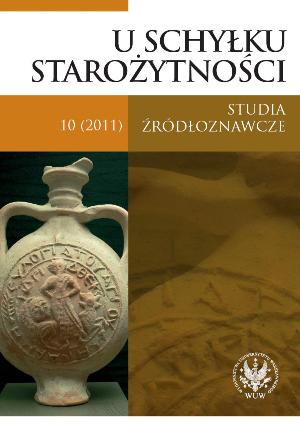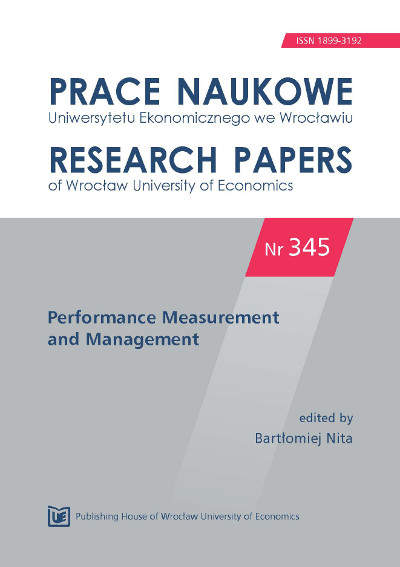
Exceptions are Ill Advised
Exceptions are Ill Advised
Healthcare in this country was never free. Prior to 1989, the state funded medical care from taxes and from the proceeds of an extremely murky national economy.
More...
Healthcare in this country was never free. Prior to 1989, the state funded medical care from taxes and from the proceeds of an extremely murky national economy.
More...
Reprinted from the interwar Přítomnost, March 1938. An article from the March 16 1938 issue of Přítomnost, published four days after Adolf Hitler’s “annexation” of Austria.
More...Keywords: criminal action; factors
I intend that in this study to capture those general components that constitute the basic theoretical edifice of criminal action: definition of factors, features and stages of development. Thus, 1) I will try to give a definition of criminal proceedings, logically rigorous in the sense of correctly highlighting not only the proximate, but also specific differences; 2) I will treat criminal action factors (theme, object, subjects, functional ability); 3) I will point out features of criminal action - binding, unavailability, indivisibility, individuality, public character - with all the ideas the doctrine expresses in this regard; 4) I will detail the main stages of the criminal action - set in motion, exercise and extinction.
More...Keywords: the formation of a contract; negotiation; unfulfillment of the obligation to negotiate in good faith
The stage before the conclusion of a contract is often lost from sight in the legal literature, despite the fact that it involves specific legal activities. The Civil Code regulates certain aspects regarding this issue, but without defining the legal status of the stage prior to concluding the contract in a complete and efficient manner. Among the activities that require the completion of complex contracts include analysis and evaluation, contract negotiation and conclusion of the preliminary provisions.
More...Keywords: military personnel; deployment; appointment or promotion; Law no. 80/1995
In our opinion, the High Court of Cassation and Justice added to the law in a manner objectionable in that it judicially created a sui generis legal status for military personnel deployed outside the Ministry of Defence. Thus, it is considered that what matters is the "deployment" itself, and the "position" on which that person was hired for is just an "accessory"; such a theory is contradicted by the reality of both the case law and the legal provisions.
More...Keywords: constitutionality control; Constituent Assembly
In 2012 the academic literature marked the completion of a century of recognition (admission) by means of judicial interpretation of the constitutionality of laws in Romania. As a starting point Decision no. 261 of the 26th of March 1912 of the Court of Cassation was taken, which upheld the power of the judiciary to rule on constitutional litigation before a court only. Even foreign authors consider the year 1912 and the Decision of the 16th of March 1912 of the Court of Cassation as the debut of the admission of settlements of constitutional disputes between fundamental laws and ordinary laws passed by Parliament.
More...
Keywords: Estonia; airline; Albania; elections; politics; predictions; Gerard Depardieu; Russia; Ukraine; kidnapping; human rights; Caspian; Central Asia; Leonid Razvozzhayev; FSB security service; citizenship; Hamidullo Turgonov; UNHCR; Vladimir Putin;
Plus, bitter Albanian political rivalry immobilizes election commission and Putin grants Gerard Depardieu Russian citizenship. Around the Bloc is TOL's daily digest of the important, the trivial, the tragic, the weird, and the sober from its coverage region.
More...
Keywords: Bulgaria; capitalism; economy; crisis; EU; end of communism; 2012; apocalypse;
For Bulgarians, maybe it is better to anticipate the apocalypse than to recall it.
More...
Keywords: Macedonia; opposition; elections; Bulgaria; Burgas; terrorism; Azerbaijan; corruption; Ilham Aliev; Russia; navy; Ukraine; economy; budget; Nikola Gruevski; Gordan Georgiev; Hezbollah; OCCRP; Vladimir Putin; Naser Kelmendi; Miroslav Miskovic; military;
Plus, Sofia claims progress in Burgas bombing probe and Russia beefs up its navy. Around the Bloc is TOL's daily digest of the important, the trivial, the tragic, the weird, and the sober from its coverage region.
More...
Keywords: Georgia; Tajikistan; Kazakhstan; Czech; Poland; UK; media; opposition; migration; amnesty; Bidzina Ivanishvili; Ivan Gasparovic; Vaclav Klaus; Karel Schwarzenberg; Vladimir Kozlov; Erlan Idrissov; Saakashvili; emigrants; Imomali Rahmon;
Plus, the rise and rise of Britain’s Polish community and the Georgian parliament overturns Saakashvili veto of amnesty bill. Around the Bloc is TOL's daily digest of the important, the trivial, the tragic, the weird, and the sober from its coverage region.
More...Kosovo recently marked the official end of the period of ‘supervised independence.’ But the refusal of Serbs to recognize Kosovo’s independence, and the instability that stems from protests against recognition, highlight that the Ahtisaari proposal is far from being implemented in this part of Kosovo. Serbs in Northern Kosovo have consistently refused to acknowledge the legitimacy of Kosovo’s central government in Prishtina. Conditions deteriorated in July 2011, when a Kosovo Police operation attempted to take control of the border crossings between Kosovo and Serbia. Since then, roadblocks (including a barricade on the main bridge over the Ibar River) and violence (including against KFOR) have been common.
More...
Keywords: KALUDIUSZ II; HISTORIA; MAXIMUS
The History of the Roman Empire at the time of the crisis of the 3rd century is not known well. The historicity of the Battle of Naissus is controversial. One of the most important arguments put forward in its favour is the assumption of the title Gothicus Maximus by Claudius II. It is the earliest attestation of this title in the Roman propaganda. In my article I analyse the assumption of the new cognomina ex virtute in the 3rd and 4th centuries (Carpicus Maximus, Gothicus Maximus, Alammanicus Maximus, Franciscus Maximus, Persicus Maximus). Emperors did not need a great undeniable victory to introduce new cognomina ex virtute. The assumption of a new title served to express the significance of the cognomen given to the ruler, not the scale of his success. The title Gothicus Maximus cannot be regarded as a proof of a spectacular success of Claudius II at Naissus, but only of his victory over the Gothi.
More...
Keywords: SOKRATES; HISTORIA; INMESTAR
The paper deals with the Inmestar incident, described in Socrates’ Church History (VII 16) and often erroneously considered to be the first accusation of a ritual murder, which the Jews have indeed faced regularly since the 12th century. According to Socrates in ca 415 CE drunken Jews in a Syrian town Inmestar tied a Christian boy to a cross and killed him. Some scholars link this incident with the feast of Purim: drunken people celebrating this holiday would have blasphemed the crucifixion of Jesus and instead of hanging an effigy of Haman on the gallows they would have affixed a child to a cross. This interpretation is hardly convincing, because Socrates does not suggest any festival context of this episode. Other scholars contest the historicity of the incident. However, it seems to be a real event, which fits quite well into the context of the sudden deterioration of Jewish-Christian relations, manifest in violent acts against the Jews, well documented at the beginning of the 5th century.
More...
Keywords: KONTROWERSJA; PELAGIANIE; HISTORIA
Quite a number of scholars claim that the Pelagian controversy started in 411. This common opinion is subjected to scrutiny in this paper. It provides a thorough analysis of sources, particularly of the writings of Augustine of Hippo. First, it is apparent (yet rarely noticed) that the first utterances of the animosity towards Pelagius were not formulated before 415 (by Augustine, Orosius and Jerome). Second, the arguments against Pelagius were devised by Augustine and influenced the decisions on Pelagius made by the African bishops, Pope Innocent and the emperor Honorius. The second line of the argument aims at showing that one ought not to write about the Pelagian controversy before 415. Augustine in his later works tried to force the opinion that he had fought with the Pelagian heresy even before it emerged. However, we should not follow his idiosyncratic view. In consequence, I am against using the vague term Pelagian controversy’ and support the view that it is better to write about the controversy between Augustine and Pelagius.
More...
Keywords: PRAWO; STAROŻYTNOŚĆ;
The topic of the article is the testamentary succession in the late Roman law, i.e., after the Constitutio Antoniniana of AD 212. The case of the testamentary succession is used to approach a more general question of the role of the local legislative practice in the process of creating law in Late Antiquity. The second purpose of this paper is to discuss whether the Roman law before the 7th century was chiefly of persuasive and instrumental character. In other words, the aim of the article is to illustrate the role of the local legal practice in the process of creating law. The starting point of the discussion is the constitution on the language of wills issued by Alexander Severus which encouraged the legal practice to elaborate a new form of wills and loosened the bonds of the legal formalism.
More...
Keywords: APOKRYFY; ŚWIADECTWO; TERTULIAN
This article investigates some traces of an original diversity in Christian attitudes towards women’s place in the Church. One of these traces is a passus in Tertullian’s homily On the baptism 17,5, where the author strives against any attempts to treat a part of the apocryphal Acts of Thecla as an argument for an empowerment of women to catechize and baptize. His fierce attack on these writings seems however disproportionate to its contents available nowadays, which could hardly act as a piece of evidence for Paul having authorized females to perform aforementioned duties. Two hypothesis have been proposed as an explanation for this divergence. According to the first one, some scenes or expressions had been expurgated by copyists worried about an unorthodox interpretation and resultant misuse of the Acts of Thecla. At least two facts speak in favor of this hypothesis: the text ends abruptly, the last sentence leaving the impression of being a fourth-century interpolation, and the apostolic aspect of Thecla’s legend, poorly illustrated in the present ATh, was significantly elaborated in Byzantine homilies and other late Christian writings, which corresponds with Thecla’s cult in the official liturgy as a female apostle authorised by Paul to teach and baptize. According to the second hypothesis, the aforesaid abuse of Thecla’s example should be understood as a manifestation of an ancient reader’s imagination which tended to associate the very scanty mention in Thecla’s Acts with contemporary practices on the edge of heterodoxy, such as widows’ initiation of catechumens berated in Syrian Didascalia or women’s significant role among Montanists in Asia Minor, the cradle of Thecla’s story. Coupled with a “teaching-baptizing” concept-cluster evoked by Paul’s final instruction for Thecla in the apocryphal narrative, it made the Acts more meaningful than they were at first in their author’s intention.
More...
Keywords: HISTORIA; SOBÓR; KONSTANTYNOPOL
Despite it being the largest body of evidence for late 7th century Byzantium, the Acts of the Third Council of Constantinople (AD 680–681) have seldom been studied. However, not only do they conceal a wealth of information on this pivotal period in the history of the Empire, but they are also a useful source for understanding of the mechanisms at work at church councils. The present paper offers a close reading of the Acts and of other sources that shed light on the Third Council of Constantinople, in particular the notes of the Roman legates to the Council which are preserved in the Liber Pontificalis, and a recently published Monothelete account of the Council. The comparison of these at times divergent sources illustrates how the Roman delegation was able to impose Dyothelete doctrine on the Monothelete church of the Empire. On the other hand, it also allows some rare glimpses into the editing of the Acts, which were conceived more as an account of the victory of Orthodoxy over heresy than as exhaustive minutes of the bishops’ discussions. Thus, the image conveyed by this carefully reworked source, in which a Monothelete party is restricted to the entourage of the irreducible patriarch of Antioch, is in all likelihood biased. It will be argued that the long interruptions between the sessions, the war with the Bulgars and the revolt of the brothers of the emperor Constantine IV are all signs of the staunch opposition of the court, the army and the ecclesiastical hierarchy to the adoption of Dyotheletism. Only at the price of ten months of proceedings, which made the Third Council of Constantinople by far the longest of the early church councils, and of a bloody repression of the opposition, was Constantine IV able to make a radical breach with the ecclesiastical policy of his predecessors, traditionally sympathetic to Monothelete theology.
More...
Keywords: PRZEŚLADOWANIA; INTELEKTUALIŚCI; POGANIE; ALEKSANDRIA
Damascius’ Vita Isidori and Zacharias Scholasticus’ Vita Severi are the main sources for the famous “persecutions” of pagan teachers in Alexandria during the reign of the emperor Zeno (474–491). The events are far from certain and much debated: the date, reasons and results of the repressions are unknown and controversial. In the Damascius’ account, which is preserved very poorly, certain Nicomedes, perhaps agens in rebus, was sent by the emperor to investigate Alexandrian circles. As a result some of the pagan philosophers were arrested and tortured. There is almost general consensus among scholars that these repressions were of a religious character. Some serious attempts were also made by scholars in order to reconstruct the events by comparison to the relation of Zacharias Scholasticus. It appears, however, that Nicomedes’ investigation had political and not religious background and it seems certain that Zacharias describing religious conflicts between Christian community and pagan teachers in Alexandria, speaks about completely different events.
More...
Keywords: critical paradigm; management accounting; principles; international standards
The purpose of this paper is to critically discuss the consultation draft on Global Management Accounting Principles (GMAP) launched by CIMA and AICPA in 2014. The paper starts with a concise presentation of the critical accounting research paradigm. Then some previous attempts to create international management accounting standards are briefly summarized. The analysis of the GMAP focuses on selected issues: the definition, objectives, principles, values and application of management accounting. It is argued that the GMAP, regardless of many qualities, are far from being a neutral set of principles, which could be commonly accepted. They are rather a subjective view on management accounting outlined as a strategic activity of finance professionals aiming to create value. Moreover, the GMAP can be also considered as an expression of hidden interests of their creators.
More...
Keywords: internal benchmarking; efficiency of technological process; heating company
The aim of this article is to illustrate the possibilities of using internal benchmarking to improve efficiency of technological process in a heating company. The research has been carried out on the basis of data from 2011 to 2013, coming from four combined heat and power plants operating within one heating company. Internal benchmarking allows for comparing the efficiency of technological process in these combined heat and power plants as well as implementing the best practices developed by a leader in the area. Separating key factors, specific to heating industry, which can be crucial in efficiency of technological process, allows one to identify the most relevant areas of business improvement in heating industry. The obtained results may be a reference point to undertake more detailed analysis.
More...